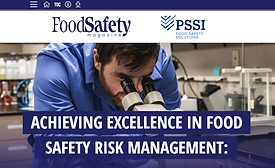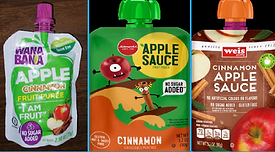Management
For a future of food safety excellence, companies must reimagine leadership competencies and focus on human skills
Read More
Pathways to Implementing Food Systems Capacity Building Programs for Smallholder Farmers: Major Constraints and Benefits
Are these programs reaching the smallholder farmers most in need?
June 28, 2024
Can 5S Be a Useful Methodology for the Sanitation Team?
There are multiple benefits to implementation of 5S methodology in the sanitation process and areas, including engagement of the sanitation team
June 28, 2024
Can the Outbreak Investigation System be Improved?
The process that separates hazards from risks is ensuring that the most important things always get done, and done well
June 24, 2024
Sponsored Content
eBook | Achieving Excellence in Food Safety Risk Management: Tackling Chemical and Microbiological Threats
June 20, 2024
Never miss the latest news and trends driving the food safety industry
eNewsletter | Website | eMagazine
JOIN TODAY!Copyright ©2024. All Rights Reserved BNP Media.
Design, CMS, Hosting & Web Development :: ePublishing










